A lot of people don’t start eating healthy, especially organically, because of the cost. Or because they don’t know where to start or if it even matters. I am going to show you how to eat organically on a budget and why you want to!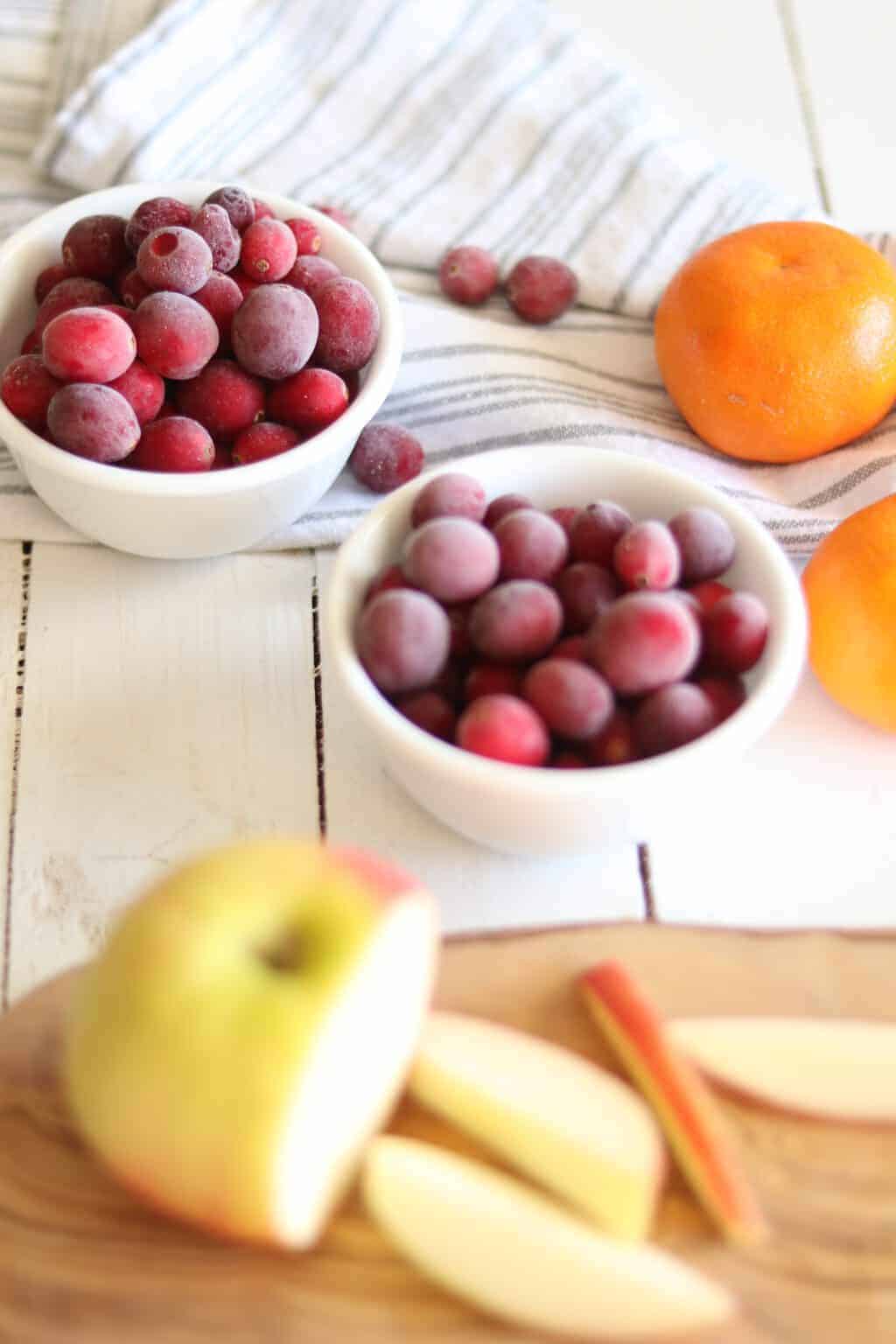
Before I got married and started dipping my toe into the health food world, I never read labels. Nor did I buy anything healthy, let alone organic.
When I first started eating “healthy,” I went through a lot of phases. A phase of thinking vegan was best, all the way to the phase of no grains and only meat. My poor husband went along with it all and never complained.
Buying organic wasn’t a thing at this time. Eating birdseed, that is what my husband called quinoa, was new to me! I had a lot to learn! I quickly realized that eating healthy was more expensive, but does it have to be? Over the years, I have learned a lot of tricks on how to eat organically on a budget.
Want this post in a printable e-book? Grab it here!
This post may contain affiliate links, which means I make a small commission at no extra cost to you. Get my full disclosure HERE.
WHAT IS ORGANIC?
Let’s start with the basics! Organic means that food is grown and processed without the use of chemicals and pesticides. Organic food can’t be made with genetically modified organisms, also known as GMOs.
In order for a food to have the USDA organic stamp of approval, it must follow a list of guidelines. You can read more about these standards HERE.
DOES EVERYTHING HAVE TO BE BOUGHT ORGANICALLY?
Nope! I use the “clean 15 and dirty dozen” list to decide what I buy organically or not. This is my first tip on saving money when it comes to eating organically. The clean 15 and dirty dozen is a list of foods put together by the Environmental Working Group (EWG) since 2004. The list is made to rank fruit and vegetables by the number of pesticides they have on them.
Items on the clean 15 list are known to have fewer pesticides on them, and I chose to buy these items non-organically. However, anything on the dirty dozen list I will only buy organically. The higher up on the list, the more pesticides. The ones at the top of the list are definitely ones to avoid unless you are buying organically.
I used to carry this list in my wallet and referred to it when I was at the grocery store; these days, I pretty much have it memorized. Besides, with the kids in tow, I barely remember my wallet, let alone a list. 😉
EWG 2018 DIRTY DOZEN AND CLEAN 15 LIST
DIRTY DOZEN
- Strawberries
- Spinach
- Nectarines
- Apples
- Grapes
- Peaches
- Cherries
- Pears
- Tomatoes
- Celery
- Potatoes
- Sweet bell peppers
CLEAN 15
- Avocados
- Sweet corn
- Pineapples
- Cabbage
- Onions
- Sweet frozen peas
- Papayas
- Asparagus
- Mangos
- Eggplant
- Honeydew melon
- Kiwi
- Cantaloupe
- Cauliflower
- Broccoli
If buying organic produce isn’t in your budget, try to stick to the foods found on the clean 15 list instead! 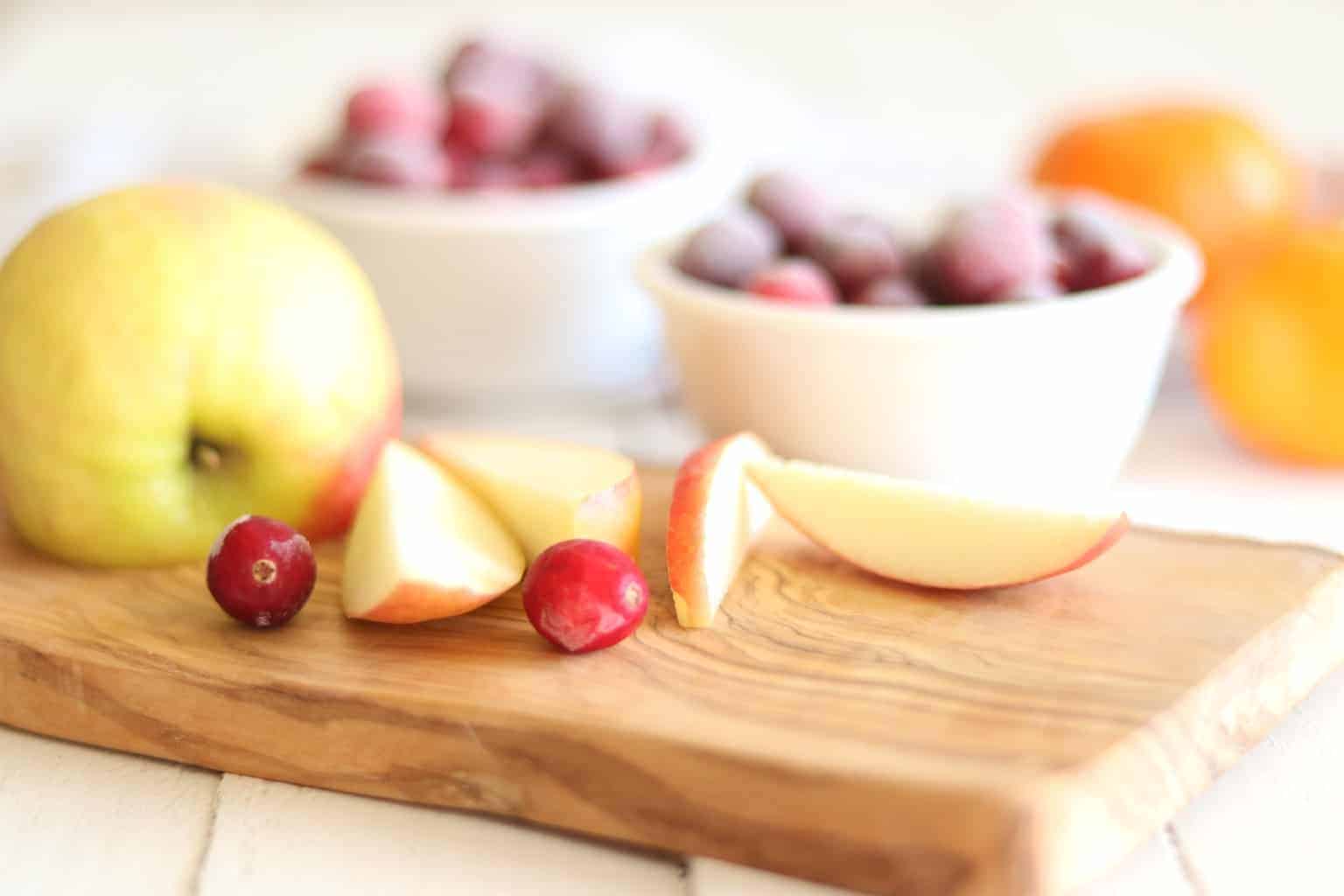
WATCH YOUR ADS, SHOP AROUND, AND BUY IN SEASON
This is another biggie for saving money! Buying a watermelon in the dead of winter is going to cost you an arm in a leg if you can even find one! During the summer months, grocery stores are practically paying you to buy zucchini and summer squashes. OK, maybe these examples were a bit extreme, but you get my point.
One example I have for this is cranberries. I live for cranberry smoothies! Right after Thanksgiving, all the cranberries go on sale, and I stock up. By stock up, I mean I buy every single bag they have sitting out that day. I freeze them so they can last me all year.
Shop around and see which stores have the best prices. For me, I know which local stores have the best price. For instance, I have found that ALDI has the best price on frozen fruit, and Trader Joe’s has the best price for frozen organic vegetables.
BUY IN BULK AND PRESERVE
Because I find cheaper foods at several different grocery stores, I like to stock up when I go. I don’t want to drive back n’ forth and all around town every time I need something. Trader Joe’s is an hour’s drive for me, so it’s not a place I want to go often. It is close to a few places, like the zoo, that we visit a couple of times a year, so anytime I am in the area, I stop in. I buy as much as I can and throw it in the deep freezer.
If you have a produce stand near you, be sure to check with them often. We have a local produce stand near us, and so often, they have amazing deals, especially if you are willing to buy in bulk. I have found boxes of organic strawberries and apples cheaper than the fruit would be nonorganic.
Most likely, if they have a big ol’ box of organic fruit on sale, it is because it is close to going bad. This is no problem for me! I will cut it, slice it, dice it, throw it in a gallon size zip lock bag, and freeze it. You can use it for smoothies or in recipes later on. 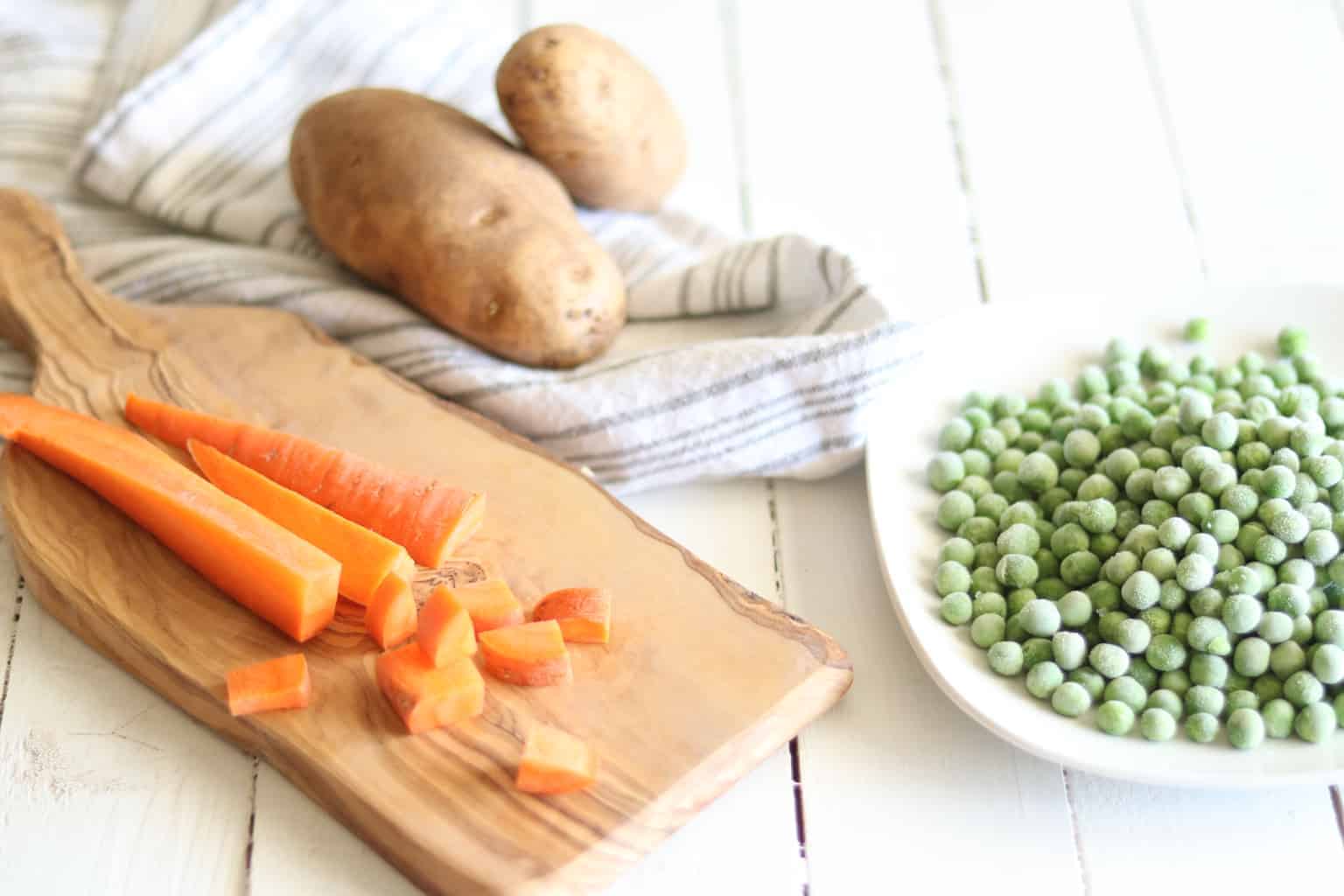
GROW YOUR OWN
Now I know this isn’t the option for everyone, but if you live in an area that you can have a garden, this will be the best way to eat organically on a budget. Before having kids, I was a nanny for a family who lived in a large neighborhood with a small yard, and they still had a garden. Nothing massive, but still a garden.
Start small and only plant the things you eat off the dirty dozen list.
During the spring and summer, I buy very little produce from the store. In a perfect world, I would grow enough to last throughout the year. I haven’t gotten there yet, but someday!
BUY LOCAL AND FROM SMALL BUSINESSES
Check out the local farmer’s markets or other farmers in your area. I buy a lot of my groceries from people rather than grocery stores.
And when I say local, I don’t always mean up the street. We have an Amish community about an hour from our house that sells organic honey, coconut oil, produce, meats, butter, and so much more.
We buy our dairy from an organic dairy farmer, and it is so much cheaper than buying it from the store. I can make a gallon of organic yogurt for $5!
We buy our organic meat from a not-so-local farmer, but he delivers organic grass-fed beef. Doing this really cuts down on my grocery budget. I had to do a little digging to find these people, but they are out there. Check out this list to find a dairy farmer in your area.
Do you have any tips for buying healthy and organic foods on a budget? Share with us in the comments below!
PIN IT FOR LATER
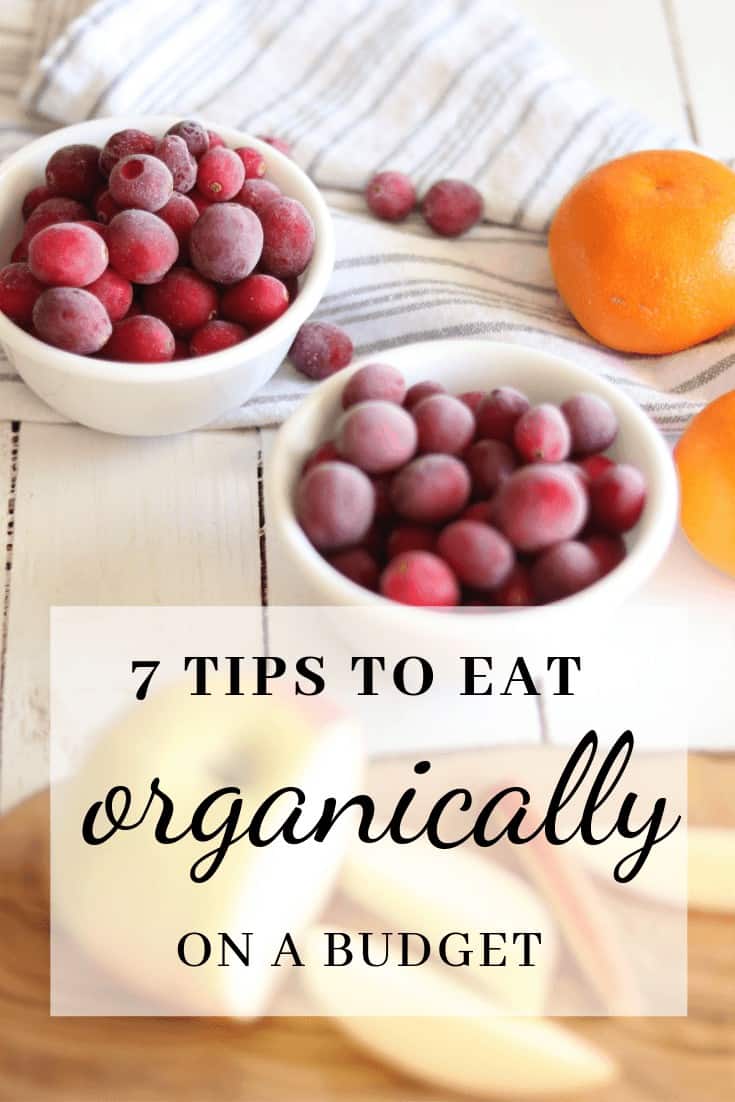

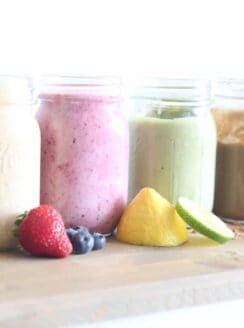

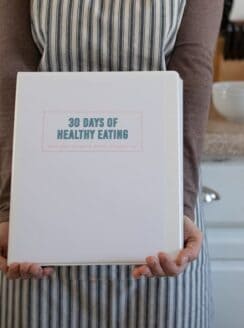
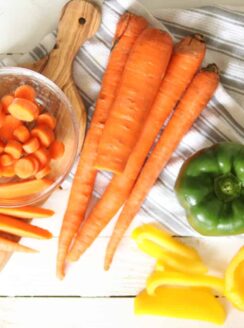
Leave a Comment: